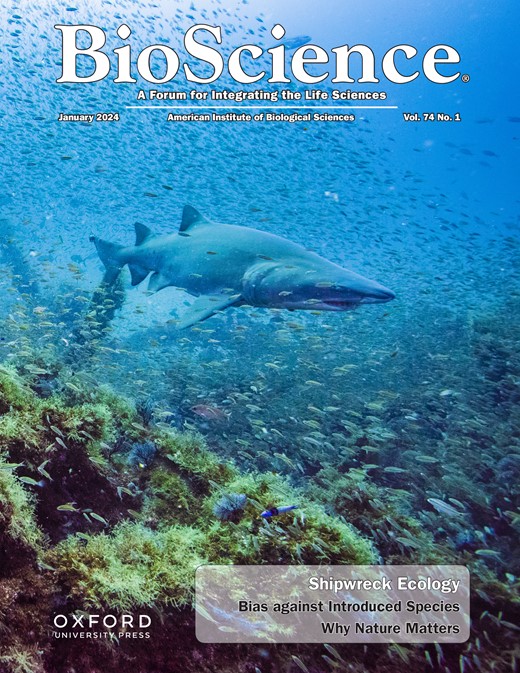海洋基础物种遗传多样性、功能和稳定性之间的关系
IF 7.6
1区 生物学
Q1 BIOLOGY
引用次数: 0
摘要
海草、珊瑚、沼泽植物、海带和红树林支撑着宝贵的沿岸生态系统,但也受到环境压力的威胁。由于需要管理这些基础类群,十多年来人们一直在研究遗传多样性与功能或稳定性之间的关系。我们综合了这些文献资料(129 篇相关论文),发现遗传多样性与功能之间中性到积极关系的报道多于消极关系的报道。然而,大部分科学认识都是基于三个种属的反应,以及将遗传多样性与测量反应变量相关联的未重复观察研究。当存在干扰时,研究往往缺乏对照或基线数据。只有 5.5% 的研究对稳定性进行了稳健的测试。这些缺陷妨碍了对遗传多样性更高的基础种群是否会提高稳定性进行严格评估,并阻碍了基于遗传学的保护策略的使用。未来的研究应重点关注不同物种和生态系统层面的影响,并采用操控性设计。本文章由计算机程序翻译,如有差异,请以英文原文为准。
The relationship between genetic diversity, function, and stability in marine foundation species
Seagrasses, corals, marsh plants, kelps, and mangroves support valuable coastal ecosystems but are threatened by environmental stressors. The need to manage these foundation taxa has spurred more than a decade of study on the relationship between genetic diversity and function or stability. We synthesized this literature base (129 relevant publications) and found more reported instances of neutral to positive relationships between genetic diversity and function than negative. However, much of the scientific understanding is based on the response of three genera and from unreplicated observational studies that correlate genetic diversity to measured response variables. When a disturbance was present, the studies often lacked controls or baseline data. Only 5.5% of the studies robustly tested for stability. These shortcomings preclude a rigorous evaluation of whether more genetically diverse foundation populations increase stability and hinder the use of genetics-based conservation strategies. Future studies should be focused on diverse species and ecosystem-level impacts using manipulative designs.
求助全文
通过发布文献求助,成功后即可免费获取论文全文。
去求助
来源期刊

BioScience
生物-生物学
CiteScore
14.10
自引率
2.00%
发文量
109
审稿时长
3 months
期刊介绍:
BioScience is a monthly journal that has been in publication since 1964. It provides readers with authoritative and current overviews of biological research. The journal is peer-reviewed and heavily cited, making it a reliable source for researchers, educators, and students. In addition to research articles, BioScience also covers topics such as biology education, public policy, history, and the fundamental principles of the biological sciences. This makes the content accessible to a wide range of readers. The journal includes professionally written feature articles that explore the latest advancements in biology. It also features discussions on professional issues, book reviews, news about the American Institute of Biological Sciences (AIBS), and columns on policy (Washington Watch) and education (Eye on Education).
 求助内容:
求助内容: 应助结果提醒方式:
应助结果提醒方式:


